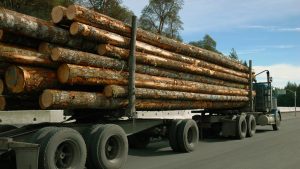VANCOUVER — B.C. can expect to see some economic growth in the coming years, depending on how quick the COVID-19 pandemic can be reined in, experts say.
Central 1, a financial services company, stated it expects the province’s economy to grow by 4.2 per cent in 2021 with its unemployment rate remaining elevated at an average of seven per cent. The company stated ongoing COVID-19 restrictions will continue to choke economic activity into 2022, but B.C. is expected to see a further 4.5 per cent GDP growth in 2022 before slowing to below three per cent in 2023.
“Like economies around the globe, B.C.’s economy continues to recover from the sharp pandemic-driven downturn in 2020,” according to Central 1 Chief Economist Bryan Yu in his latest B.C. Economic Outlook 2021-2023.
More sales of food and lumber boosted trends last year. Yu noted in the future, coal and natural gas is expected to expand further due to stronger global demand and elevated commodity prices.
“Improved business conditions, rising exports and stronger commodity prices will drive a strong rebound in non-residential investment as firms begin to spend after holding back during the early stages of the pandemic,” said Yu. “For example, growth of more than 10 per cent is expected for machinery and equipment and building investment this year.”
Yu expects real estate to have a good year, growing by 20 per cent due to low borrowing costs and remote-working households moving to suburban and smaller urban markets.
“Average prices are forecast to rise 10 per cent this year with a moderating growth trend thereafter,” Yu said.
He is predicting residential investment to climb two per cent this year followed by accelerating gains of four and six per cent thereafter. Yu said this will be due to an expected increase in new housing starts although starts will hold below 40,000 annual units until 2023.
“An improved labour market since the spring provides a solid launchpad for employment growth this year,” said Yu. “Average employment is forecast to rise 4.7 per cent, with growth sliding to 3.2 per cent in 2022.”
He expects the majority of sectors to see employment rates move back towards pre-pandemic levels this year, with the exception of tourism, accommodations, foodservices, arts, entertainment and recreation.
Yu explained earlier this year the unemployment rate stood at eight per cent, he is forecasting a seven per cent average for 2021 which will dip to an average of five per cent by 2023. He attributed this to downward pressure as a result of weak population growth over the coming year contributing to weaker labour force growth.
However, Yu cautioned the forecast heavily depends on how new variants of the virus spread and how quickly B.C. and Canada can deploy effective vaccines.











Recent Comments
comments for this post are closed